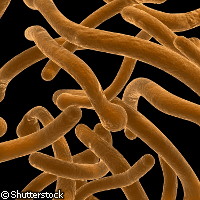Research shows the genetic base of fungal infections
Two independent research studies, published together in the New England Journal of Medicine, used DNA sequencing and genetic mapping techniques to identify two proteins that when missing or mutated impair the body's ability to fight off the fungal Candida infection. The research findings, funded in part by the EU, could increase our understanding of the genetic basis of fungal infections and lead to new treatments not only for Candida but for other types of fungal infection too. EU support for the work came from the EUR 1.6 million MC-PIAID ('Marie-Curie grant on primary immuno-deficiencies and auto-immune diseases') project, which was financed under the human resources and mobility budget line of the Sixth Framework Programme (FP6) Fungal infections such as thrush (Candida albicans) and athlete's foot (tinea pedis) are common and affect many thousands of people every year. Many of us have the occasional brush with a fungal infection, but some people seem to be particularly susceptible. There are many treatments with varying degrees of success, but fungal infections are known for their persistence and some people succumb over and over again. Now two independent international research teams may have found the reason for this. The teams, one led by Radboud University in the Netherlands and the other by University College London, UK, have discovered that mutations in two particular proteins called Dectin-1 and CARD9 impair the immune system's ability to control fungi in the body. When the protein Dectin-1 has recognised the presence of Candida in the body, immune cells send signals to CARD9 which acts as an adaptor molecule. CARD9 then initiates response mechanisms from the immune system to protect the body from the microorganisms. But if either Dectin-1 or CARD9 are missing or mutated, then the immune system will not be able to keep the infection under control, which will mean increased occurrences of Candida infections, particularly the vaginal fungal infections caused by C. albicans. 'These findings are a first step in understanding the genetic susceptibility to common and disabling fungal diseases such as onychomycosis and recurrent vulvovaginal candidiasis,' said Dr Bart Ferwerda from Radboud University, who first identified the Dectin-1 mutations in a family suffering from mucocutaneous fungal infection. Dr Erik-Oliver Glocker from the research team at University College London, which identified CARD9's connection to Candida, said the research results had great potential for advances in treatment. 'This discovery enables further insights into the interaction between fungi and the human immune system and may pave the way for future therapeutic options in patients suffering from Candida infections,' he said. Previous experiments have been carried out to determine the responses of mice to fungal infections with similar results, so the results of this study show that the ability to protect against fungal infections is the same in human beings. Professor Mihai Netea, whose team from Radboud University discovered the relationship between fungal infections and Dectin-1, said, 'Although the process of host response to fungal infection has previously been studied in mice, it is very interesting to see that it is the same in humans. The new results show that the mechanisms to protect against fungal infections have been largely conserved by evolution between mice and humans, which is not necessarily the case for other microbes.' The research consortia included the National Center for Biotechnology Information (NCBI) in the US and the Technical University of Munich, Germany.
Countries
Germany, Netherlands, United Kingdom, United States



